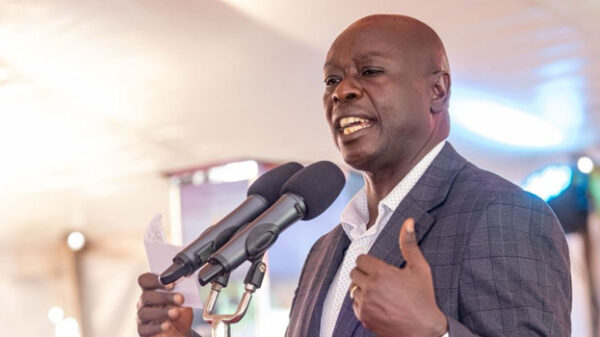NAIROBI, Kenya, Oct 31 – Universities have been implored to adopt innovative ways to mobilize for resources so as to address the current funding crisis in the sector.
The ailing financial health in public universities has been blamed on underfunding by the National Treasury exacerbating the sinking of universities due to lack of funds.
University Fund CEO Geoffrey Monari however pointed out that dependency on the government to bail out universities might not be the viable solution due to the competing interest.
“The most ideal situation is for the government to provide additional funding and if this was case we would have an additional allocation of Sh20 billion but as we all know they are many competing issues,” he said during the weekend.
In the last financial year 2021/2022, the board -which funds higher learning institutions in form of grants- had a budget deficit of Sh39.9 billion.
In the revelations made by Monari, it shows that the institution required an allocation of Sh 87.3B to support 434,631 public and private institutions.
Former National Treasury Cabinet Secretary Ukur Yattani however gave them an allocation of Sh47.3 billion which was nearly half of the total funds they required.
“In the last financial year, we had a budget deficit of Sh39.9 billion and that is where the rubber began to hit the road and that’s why you see the high learning institutions have immense challenges,” he said.
Since 2018, the Jubilee government has been pushing for the 100 percent transition policy.
However, the funding disbursed by the exchequer to the higher learning institutions has not been commensurate to the number of students joining universities.
In addition to this, the number of students joining universities is higher compared to those who are joining the higher learning institutions.
In the last financial year 92,950 students graduated from the universities who accounted for Sh 12.5 billion of the fund’s allocation.
With the budgetary allocation remaining the same, the university fund still remains with the challenge of underfunding as the number of students joining universities is higher.
“We still have a shortage because the ones who are coming in will be more than the ones who are exiting which means that the incoming cohort is larger by 52,195 students and yet the funding remains the same,” Monari stated.
In 2022, cohort of 145,145 students required an allocation of more than Sh32 billion hence the push for additional funds by the government.
“We are looking at a shortfall of more than Sh20 billion with the number of incoming cohort larger than exiting graduates being 52,195 hence the expected fund increase,” Monari stated.
Since financial year 2017/2018, the government has been failing to meet its requirement of funding students in universities.
The government is expected to fund 80 per cent while the remaining 20 per cent is to be funded by students.
However, the allocation started at 66 per cent in the year 2017/2018 and was later reduced to 48.11 per cent in the year 2021/2022 and is currently at 44 per cent due to the financial situation in the country.
Currently, public universities are facing a financial crisis as they collectively owe government agencies and pension schemes about Sh56.1 billion.
According to data by UF in the last concluded financial year the debt is owed to NSSF (Sh139 million), pension schemes (Sh18.6 billion), the Kenya Revenue Authority (Sh13.7 billion), suppliers (Sh4.9 billion), part-time lecturers (Sh4.6 billion).
The financially ailing institutions also owe NHIF (Sh2 million), loan deductions (Sh1.4 billion), Sacco contributions (Sh4.2 billion), contractors (Sh1.5 billion) and others (Sh10.7 billion).
“Currently, universities are facing a profound financial crisis. The aftermath of Covid-19 still lingers. The war in Ukraine has destabilised various economies and oil prices and supply chain globally,” Monari said.

























































